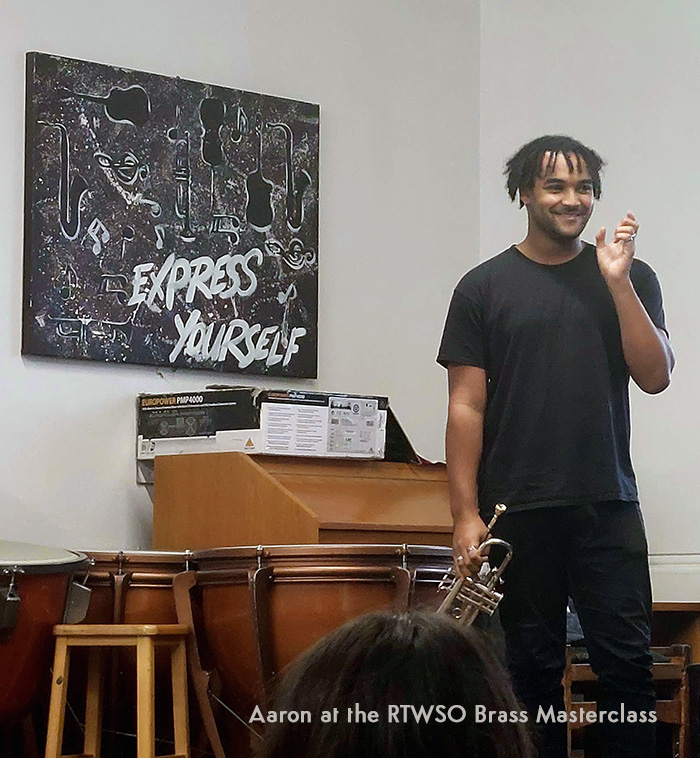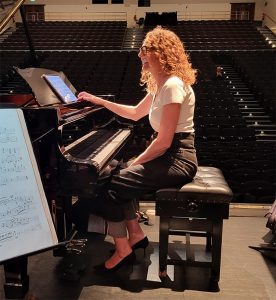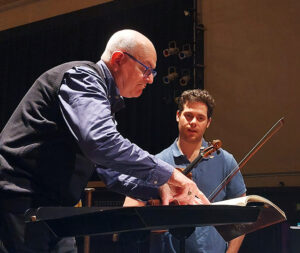The RTWSO concert on 26 November 2023 in the Assembly Hall, Tunbridge Wells, was billed as containing music written in the ‘classical’ era. With Roderick Dunk, Music Director and regular conductor, in charge, the concert featured compositions by Mozart, Haydn and Mendelssohn. Music composed in this era will not, usually, be unfamiliar or challenging for the audience to understand. Conversely, whilst the music may, or may not, be technically challenging for the orchestra to play, it must at the same time give no sense of complacency in its execution and deliver a freshness in performance.
So what was the end result?
The first half of the concert closed with an exhilarating performance of the Haydn Trumpet Concerto played by the very talented, young trumpeter Aaron Azunda Akugbo. It certainly was rather special to witness and at the end he received loud and long acclamation from the Assembly Hall audience. There was a buzz going around the auditorium in the interval, and glowing and appreciative comments and conversations could be overheard. And, as readers of the Programme will have found out, this young man had generously given his time at the beginning of November fronting a Brass Masterclass to young brass players in the area. This was part of the Orchestra’s Outreach work – what lucky youngsters – and well done to Yvonne Smith and her team for securing and organising such an event.
The concert opened with Mozart’s Symphony No. 29. It is scored for strings, 2 oboes and 2 horns so has a compact, tight-knit feel. With smaller forces being employed there is very much a chamber feel to the music where every note matters and precision is paramount. Entries and solos can be very exposed, so by way of reference to my earlier comment, everything had to be just right. Big tick!
The second half of the concert contained one piece – Symphony No. 3 [The Scottish] by Mendelssohn. Unlike the size of orchestra required for the Mozart symphony, this piece is scored for a larger number of players, and presents different challenges. There is a great deal of fast playing required in the strings, including the lower string voices. Fingers need to fly, but without this speed the piece would lose momentum and purpose. Whilst the percussion section had the afternoon off and only the timpanist was required, there was still enough ‘noise’ generated with an augmented horn section adding bulk and volume. The woodwind section also had a very busy time and at the end it was good to see Roderick Dunk acknowledging the special contribution made by Graham King, principal clarinet.
Without going into detail the construction of this symphony is, in some ways, not typical. For example, Mendelssohn adds a Coda right at the end just when you think that everything is over. This appears to be a Marmite moment dividing audiences. The excellent Programme notes said that the great conductor Otto Klemperer disliked this Coda so much that that he wrote his own in substitution! A person very close to the RTWSO also has disapproving thoughts, likening it to TV’s Teletubbies prancing around! Others believe it adds a majestic conclusion. Making analogies to creatures moving about to music can be found elsewhere – the British musicologist Sir Donald Tovey described the final movement of the Violin concerto by Sibelius as a “polonaise for polar bears”. He didn’t mean his comment to be derogatory. Substitute Teletubbies!
Enough. In terms of overall performance and enjoyment given, this was indeed a classic concert and another big tick for the orchestra.




